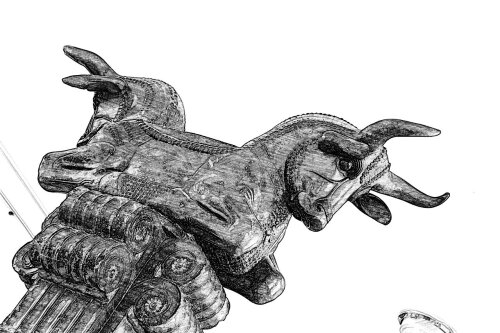Best Mining Law Lawyers in Sweden
Share your needs with us, get contacted by law firms.
Free. Takes 2 min.
Or refine your search by selecting a city:
List of the best lawyers in Sweden
About Mining Law in Sweden
Mining Law in Sweden regulates the exploration and extraction of minerals found in the country. As a key sector in the Swedish economy, mining is governed by several laws and regulations to ensure responsible and sustainable operations. The primary legislation is the Swedish Minerals Act, which sets the requirements for permits, environmental considerations, and responsibilities of mining companies. The legal framework is designed to balance economic development with the protection of people, property, and the environment.
Why You May Need a Lawyer
Legal assistance is often needed in mining matters due to the complexity and strict regulation of the industry. Common situations where a lawyer can provide valuable help include applying for exploration or mining permits, negotiating land use agreements with property owners, understanding environmental obligations, handling disputes with authorities or landowners, and ensuring compliance with local and EU regulations. Lawyers also assist with due diligence in mining acquisitions or partnerships and can help navigate appeals if a permit is denied or limited by authorities.
Local Laws Overview
Several key laws are particularly relevant to mining in Sweden. The Swedish Minerals Act (Minerallagen) is the foundation for mining in the country. It defines which minerals are considered concession minerals, outlines the requirements for exploration permits (undersökningstillstånd) and exploitation concessions (bearbetningskoncession), and explains the rights of property owners and the obligations of license holders.
The Environmental Code (Miljöbalken) is also crucial, as all mining activities must meet strict environmental standards, including assessments and ongoing monitoring. The Planning and Building Act, as well as local land use plans, can also affect mining operations. Moreover, mining companies need to work closely with agencies such as the Mining Inspectorate of Sweden and may need to consult with affected Sami communities, especially where reindeer herding is impacted.
Frequently Asked Questions
What are the main permits required for mining in Sweden?
You typically need an exploration permit to search for minerals and an exploitation concession to extract them. In addition, an environmental permit is usually required before operations begin.
Who owns the mineral rights in Sweden?
Certain valuable minerals, known as concession minerals, can be explored and extracted by private companies or individuals who obtain the appropriate permits, regardless of who owns the surface land. For other minerals and gravel, the rights often belong to the landowner.
What is the process for obtaining a mining permit?
The process begins with an application for an exploration permit to the Mining Inspectorate. If minerals are found, you may apply for an exploitation concession. Separate environmental permits are required and are assessed by environmental courts.
Do mining companies need to compensate landowners?
Yes, mining companies usually must compensate landowners for use of the land and for any damages caused by exploration or mining activities.
How is the environment protected during mining?
All mining projects must comply with the Environmental Code. This includes conducting environmental impact assessments, public consultations, and continuous monitoring to prevent and mitigate damage.
Can local communities object to mining operations?
Yes, local governments, landowners, Sami communities, and the public have the opportunity to provide input during the permit processes. Their opinions are considered, especially concerning environmental and cultural impacts.
What role do Sami communities play in mining law?
Sami communities have special rights regarding reindeer herding and must be consulted if mining may affect their traditional activities. Their input must be considered during permit applications and environmental assessments.
How long do mining permits last in Sweden?
An exploration permit is usually valid for three years and can be extended. An exploitation concession is typically granted for 25 years, with the possibility of extensions.
What penalties apply for illegal mining?
Illegal mining, such as operating without the proper permits, can result in fines, suspension of activities, required restoration of sites, and even criminal liability for responsible individuals or companies.
Who regulates mining activities in Sweden?
The main regulatory authority is the Mining Inspectorate of Sweden (Bergsstaten), but environmental courts and other government agencies also play important roles depending on the type of activity and location.
Additional Resources
For more information or assistance regarding Mining Law in Sweden, consider the following resources:
- The Mining Inspectorate of Sweden (Bergsstaten) - administers mineral permits and concessions
- Swedish Environmental Protection Agency (Naturvårdsverket) - provides guidelines on environmental impacts and regulations
- The Geological Survey of Sweden (SGU) - offers data and maps for mineral resources
- Local municipalities - for information on land use planning and zoning
- Sami Parliament (Sametinget) - for issues relating to Sami rights and reindeer herding
Next Steps
If you need legal assistance in Mining Law, start by documenting your situation and gathering any relevant correspondence, permits, or decisions. Identify the specific legal issue, such as permit applications, disputes with authorities, or landowner negotiations. Consider consulting a qualified lawyer experienced in Swedish Mining Law. They can evaluate your case, guide you through the process, represent you in dealings with authorities, and help protect your interests. Acting early can help prevent costly mistakes and ensure compliance with all applicable laws.
Lawzana helps you find the best lawyers and law firms in Sweden through a curated and pre-screened list of qualified legal professionals. Our platform offers rankings and detailed profiles of attorneys and law firms, allowing you to compare based on practice areas, including Mining Law, experience, and client feedback.
Each profile includes a description of the firm's areas of practice, client reviews, team members and partners, year of establishment, spoken languages, office locations, contact information, social media presence, and any published articles or resources. Most firms on our platform speak English and are experienced in both local and international legal matters.
Get a quote from top-rated law firms in Sweden — quickly, securely, and without unnecessary hassle.
Disclaimer:
The information provided on this page is for general informational purposes only and does not constitute legal advice. While we strive to ensure the accuracy and relevance of the content, legal information may change over time, and interpretations of the law can vary. You should always consult with a qualified legal professional for advice specific to your situation.
We disclaim all liability for actions taken or not taken based on the content of this page. If you believe any information is incorrect or outdated, please contact us, and we will review and update it where appropriate.
Browse mining law law firms by city in Sweden
Refine your search by selecting a city.

















